The Big Book of Christmas Mysteries
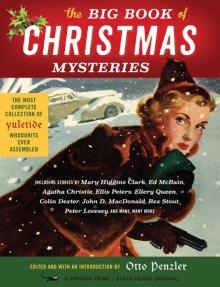

Author: Otto Penzler
Category: Other3
Published: 2013
Series:
View: 549
Read OnlineHave yourself a crooked little Christmas with The Big Book of Christmas Mysteries. Edgar Award-winning editor Otto Penzler collects sixty of his all-time favorite holiday crime stories--many of which are difficult or nearly impossible to find anywhere else. From classic Victorian tales by Arthur Conan Doyle, Robert Louis Stevenson, and Thomas Hardy, to contemporary stories by Sara Paretsky and Ed McBain, this collection touches on all aspects of the holiday season, and all types of mysteries. They are suspenseful, funny, frightening, and poignant. Included are puzzles by Mary Higgins Clark, Isaac Asimov, and Ngaio Marsh; uncanny tales in the tradition of A Christmas Carol by Peter Lovesey and Max Allan Collins; O. Henry-like stories by Stanley Ellin and Joseph Shearing, stories by pulp icons John D. MacDonald and Damon Runyon; comic gems from Donald E. Westlake and John Mortimer; and many, many more. Almost any kind of mystery you’re in the mood for--suspense, pure detection, humor, cozy, private eye, or police procedural—can be found in these pages. FEATURING:- Unscrupulous Santas- Crimes of Christmases Past and Present- Festive felonies- Deadly puddings- Misdemeanors under the mistletoe- Christmas cases for classic characters including Sherlock Holmes, Brother Cadfael, Miss Marple, Hercule Poirot, Ellery Queen, Rumpole of the Bailey, Inspector Morse, Inspector Ghote, A.J. Raffles, and Nero Wolfe.About the AuthorOtto Penzler is the editor of eleven other Vintage Crime/Black Lizard anthologies, including The Big Book of Pulps, The Big Book of Black Mask Stories, and, most recently, The Big Book of Ghost Stories. He lives in New York City. Excerpt. © Reprinted by permission. All rights reserved.The Adventure of the Christmas Pudding Agatha Christie It seems fitting, somehow, that the “Mistress of Mystery,” the “Queen of Crime,” set numerous stories in the cozy world of Christmas. The great talent that Dame Agatha brought to her detective stories was the element of surprise, and what could be more surprising than killing someone at what is meant to be the most peaceful, love-filled time of the year? This splendid story was such a favorite of the author that she used it as the title story of her collection The Adventure of the Christmas Pudding and a Selection of Entrées (London, Collins, 1960). The Adventure of the Christmas Pudding Agatha Christie I “I regret exceedingly——” said M. Hercule Poirot. He was interrupted. Not rudely interrupted. The interruption was suave, dexterous, persuasive rather than contradictory. “Please don’t refuse offhand, M. Poirot. There are grave issues of State. Your co-operation will be appreciated in the highest quarters.” “You are too kind,” Hercule Poirot waved a hand, “but I really cannot undertake to do as you ask. At this season of the year——” Again Mr. Jesmond interrupted. “Christmas time,” he said, persuasively. “An old-fashioned Christmas in the English countryside.” Hercule Poirot shivered. The thought of the English countryside at this season of the year did not attract him. “A good old-fashioned Christmas!” Mr. Jesmond stressed it. “Me—I am not an Englishman,” said Hercule Poirot. “In my country, Christmas, it is for the children. The New Year, that is what we celebrate.” “Ah,” said Mr. Jesmond, “but Christmas in England is a great institution and I assure you at Kings Lacey you would see it at its best. It’s a wonderful old house, you know. Why, one wing of it dates from the fourteenth century.” Again Poirot shivered. The thought of a fourteenth-century English manor house filled him with apprehension. He had suffered too often in the historic country houses of England. He looked round appreciatively at his comfortable modern flat with its radiators and the latest patent devices for excluding any kind of draught. “In the winter,” he said firmly, “I do not leave London.” “I don’t think you quite appreciate, M. Poirot, what a very serious matter this is.” Mr. Jesmond glanced at his companion and then back at Poirot. Poirot’s second visitor had up to now said nothing but a polite and formal “How do you do.” He sat now, gazing down at his well-polished shoes, with an air of the utmost dejection on his coffee-coloured face. He was a young man, not more than twenty-three, and he was clearly in a state of complete misery. “Yes, yes,” said Hercule Poirot. “Of course the matter is serious. I do appreciate that. His Highness has my heartfelt sympathy.” “The position is one of the utmost delicacy,” said Mr. Jesmond. Poirot transferred his gaze from the young man to his older companion. If one wanted to sum up Mr. Jesmond in a word, the word would have been discretion. Everything about Mr. Jesmond was discreet. His well-cut but inconspicuous clothes, his pleasant, well-bred voice which rarely soared out of an agreeable monotone, his light-brown hair just thinning a little at the temples, his pale serious face. It seemed to Hercule Poirot that he had known not one Mr. Jesmond but a dozen Mr. Jesmonds in his time, all using sooner or later the same phrase—“a position of the utmost delicacy.” “The police,” said Hercule Poirot, “can be very discreet, you know.” Mr. Jesmond shook his head firmly. “Not the police,” he said. “To recover the—er—what we want to recover will almost inevitably involve taking proceedings in the law courts and we know so little. We suspect, but we do not know.” “You have my sympathy,” said Hercule Poirot again. If he imagined that his sympathy was going to mean anything to his two visitors, he was wrong. They did not want sympathy, they wanted practical help. Mr. Jesmond began once more to talk about the delights of an English Christmas. “It’s dying out, you know,” he said, “the real old-fashioned type of Christmas. People spend it at hotels nowadays. But an English Christmas with all the family gathered round, the children and their stockings, the Christmas tree, the turkey and plum pudding, the crackers. The snow-man outside the window——” In the interests of exactitude, Hercule Poirot intervened. “To make a snow-man one has to have the snow,” he remarked severely. “And one cannot have snow to order, even for an English Christmas.” “I was talking to a friend of mine in the meteorological office only today,” said Mr. Jesmond, “and he tells me that it is highly probable there will be snow this Christmas.” It was the wrong thing to have said. Hercule Poirot shuddered more forcefully than ever. “Snow in the country!” he said. “That would be still more abominable. A large, cold, stone manor house.” “Not at all,” said Mr. Jesmond. “Things have changed very much in the last ten years or so. Oil-fired central heating.” “They have oil-fired central heating at Kings Lacey?” asked Poirot. For the first time he seemed to waver. Mr. Jesmond seized his opportunity. “Yes, indeed,” he said, “and a splendid hot water system. Radiators in every bedroom. I assure you, my dear M. Poirot, Kings Lacey is comfort itself in the winter time. You might even find the house too warm.” “That is most unlikely,” said Hercule Poirot. With practised dexterity Mr. Jesmond shifted his ground a little. “You can appreciate the terrible dilemma we are in,” he said, in a confidential manner. Hercule Poirot nodded. The problem was, indeed, not a happy one. A young potentate-to-be, the only son of the ruler of a rich and important native state, had arrived in London a few weeks ago. His country had been passing through a period of restlessness and discontent. Though loyal to the father whose way of life had remained persistently Eastern, popular opinion was somewhat dubious of the younger generation. His follies had been Western ones and as such looked upon with disapproval. Recently, however, his betrothal had been announced. He was to marry a cousin of the same blood, a young woman who, though educated at Cambridge, was careful to display no Western influences in her own country. The wedding day was announced and the young prince had made a journey to England, bringing with him some of the famous jewels of his house to be reset in appropriate modern settings by Cartier. These had included a very famous ruby which had been removed from its cumbersome old-fashioned necklace and had been given a new look by the famous jewellers. So far so good, but after this came the snag. It was not to be supposed that a young man possessed of much wealth and convivial tastes should not commit a few follies of the pleasanter type. As to that there would have been no censure. Young princes were supposed to amuse themselves in this fashion. For the prince to take the girlfriend of the moment for a walk down Bond Street and bestow upon her an emerald bracelet or a diamond clip as a reward for the pleasure she had afforded him would have been regarded as quite natural and suitable, corresponding in fact to the Cadillac cars which his father invariably presented to his favourite dancing girl of the moment. But the prince had been far more indiscreet than that. Flattered by the lady’s interest, he had displayed to her the famous ruby in its new setting, and had finally been so unwise as to accede to her request to be allowed to wear it—just for one evening! The sequel was short and sad. The lady had retired from their supper-table to powder her nose. Time passed. She did not return. She had left the establishment by another door and since then had disappeared into space. The important and distressing thing was that the ruby in its new setting had disappeared with her. These were the facts that could not possibly be made public without the most dire consequences. The ruby was something more than a ruby, it was a historical possession of great significance, and the circumstances of its disappearance were such that any undue publicity about them might result in the most serious political consequences. Mr. Jesmond was not the man to put these facts into simple language. He wrapped them up, as it were, in a great deal of verbiage. Who exactly Mr. Jesmond was, Hercule Poirot did not know. He had met other Mr. Jesmonds in the course of his career. Whether he was connected with the Home Office, the Foreign Office, or some more discreet branch of public service was not specified. He was acting in the interests of the Commonwealth. The ruby must be recovered. M. Poirot, so Mr. Jesmond delicately insisted, was the man to recover it. “Perhaps—yes,” Hercule Poirot admitted, “but you can tell me so little. Suggestion— suspicion—all that is not very much to go upon.” “Come now, M. Poirot, surely it is not beyond your powers. Ah, come now.” “I do not always succeed.” But this was mock modesty. It was clear enough from Poirot’s tone that for him to undertake a missi...
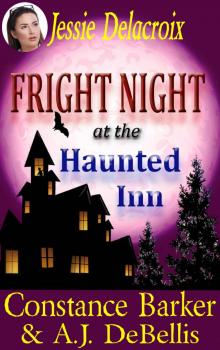 Jessie Delacroix: Fright Night at the Haunted Inn (Whispering Pines Mystery Series Book 4)
Jessie Delacroix: Fright Night at the Haunted Inn (Whispering Pines Mystery Series Book 4)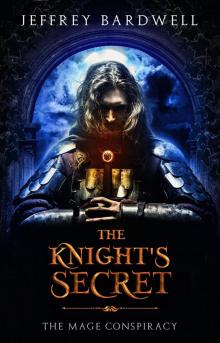 The Knight's Secret
The Knight's Secret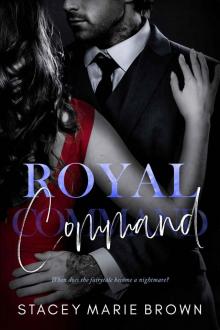 Royal Command (Royal Watch Book 2)
Royal Command (Royal Watch Book 2)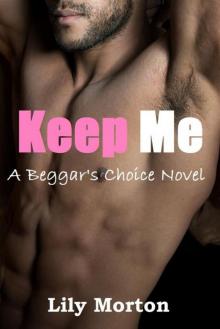 Keep Me (Beggar's Choice #3)
Keep Me (Beggar's Choice #3)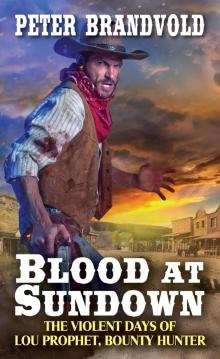 Blood at Sundown
Blood at Sundown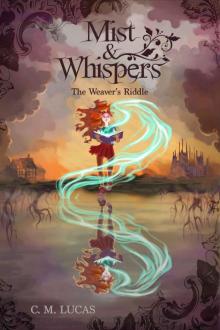 Mist & Whispers
Mist & Whispers The Land Grabbers: The New Fight over Who Owns the Earth
The Land Grabbers: The New Fight over Who Owns the Earth Nice to Come Home To
Nice to Come Home To